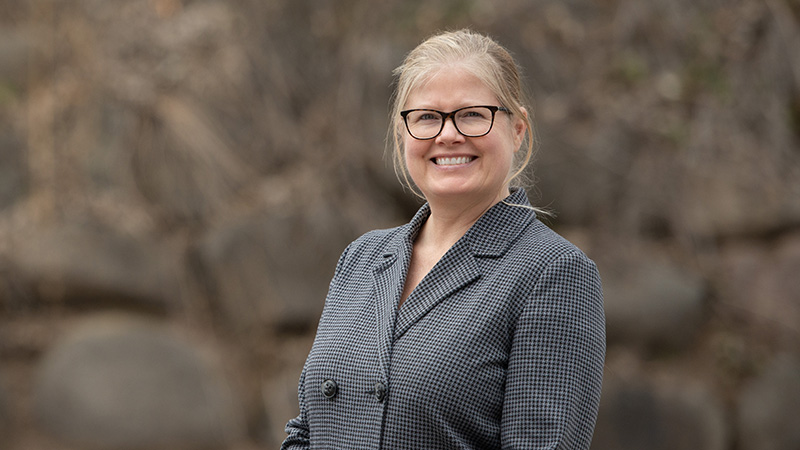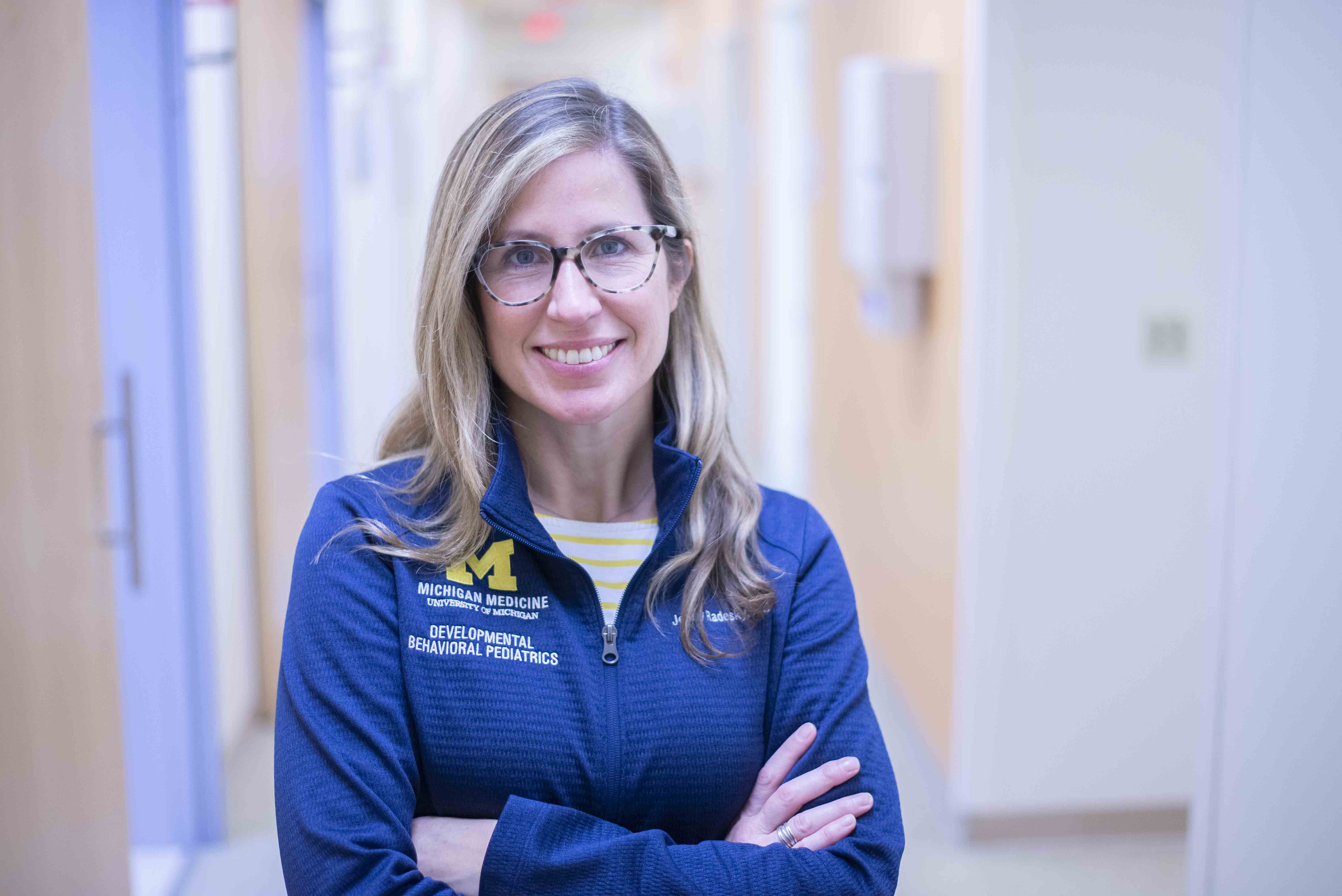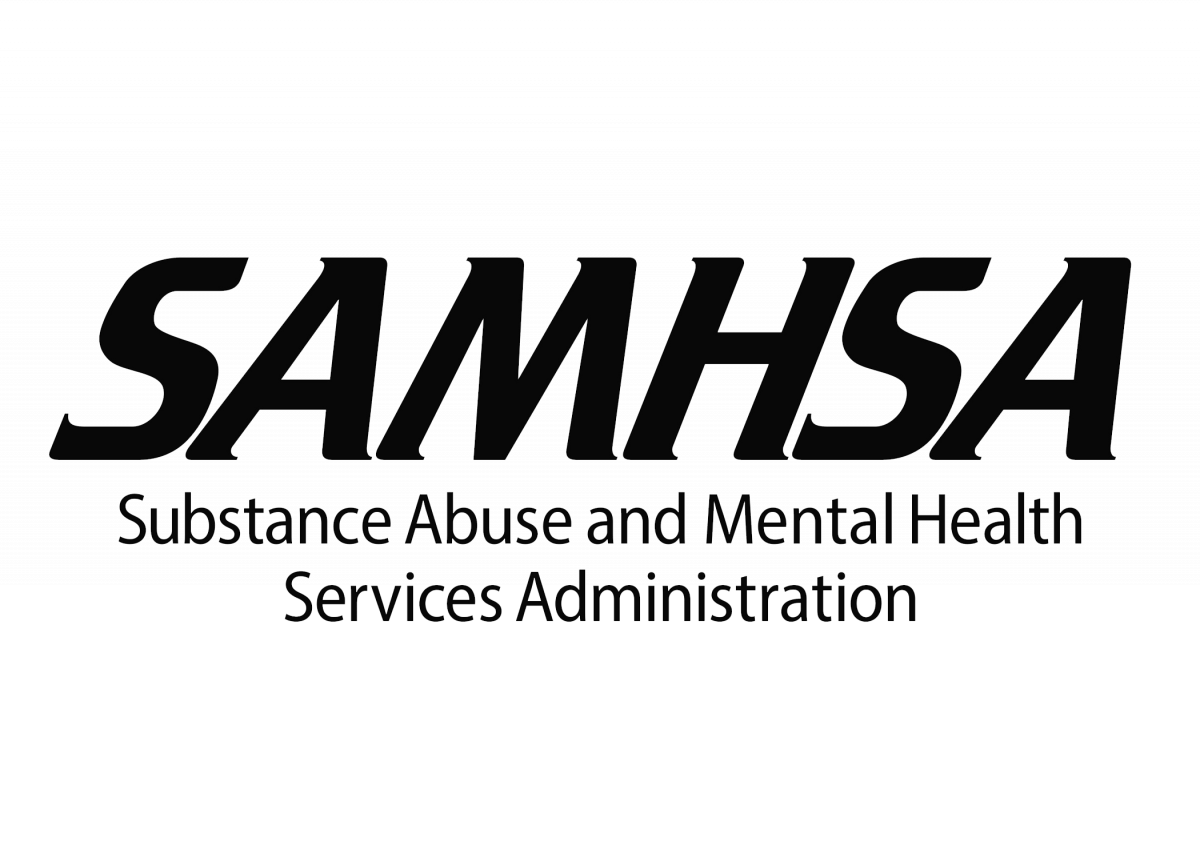Who We Are
Center Director Nicole Owings-Fonner, MA, PMP, leads a strong internal team of program, communications and mental health professionals. The work of the Center is guided by our Co-Medical Directors, Dr. Megan Moreno and Dr. Jenny Radesky.

Megan Moreno, MD, MPH, MSEd, FAAP
Co-Medical Director
Dr. Megan Moreno is a Professor of Pediatrics and Affiliate Professor of Educational Psychology at the University of Wisconsin-Madison. She is the academic chief for the Division of General Pediatrics and Adolescent Medicine and serves as Vice Chair of Academic Affairs for the Department of Pediatrics. Her research focuses on 3 core areas: 1) Innovative approaches to adolescent health using social media, 2) Internet safety education, and 3) Measuring technology use and misuse. Clinically, she is interested in complex medical conditions and the intersection of physical and mental health among adolescents. Dr. Moreno is passionate about helping teens through the challenges around balancing relationships, influences, and experiences, and to consider ways in which technology may provide new venues for education and support. You can follow her team on social media at @SMAHRTeam.

Jenny Radesky, MD, FAAP
Co-Medical Director
Dr. Jenny Radesky is the David G. Dickinson Collegiate Professor of Pediatrics at the University of Michigan Medical School, where she directs the Division of Developmental Behavioral Pediatrics. Her NIH-funded research examines the use of mobile and interactive technology by parents and young children, parent-child relationships, and child social-emotional development. She authored the American Academy of Pediatrics (AAP) policy statements Media and Young Minds and Digital Advertising to Children. She is editor of the developmental behavioral pediatrics textbook Encounters With Children, 5th Edition, and sits on the Board of Children Youth and Families at the National Academy of Science. You can follow her on Instagram @jennyradeskymd.
What We Do
The Center of Excellence on Social Media and Youth Mental Health serves as a centralized, trusted source of evidence and support for children and teens, parents, educators, pediatricians and other professionals who help youth navigate social media.
By listening to families, partnering with experts and communities and engaging with industry, the Center works to:
- Improve the mental health of children and teens by reducing the risks and leveraging the benefits of social media.
- Build the capacity of individuals who work with children and teens to mitigate harmful impacts of social media on youth mental health and promote healthy social media use.
- Synthesize and promote the evidence base and best practices for healthy social media use via communication, guidance and other resources.
Our Approach
Meeting the moment: We recognize the need to act now to address the youth mental health crisis while simultaneously working to prevent mental health problems in younger children. At the same time, the current public narrative can be polarizing and ineffective, generalizing technology as all bad or all good. Our approach actively avoids reinforcing these narratives, focusing on practical solutions.
Changing the way we talk about media: We are putting children and teens at the center of our work and our approach. Our strengths-based, action-oriented framework:
- Emphasizes child and adolescent agency and perspectives;
- Supports the relational and emotional processes that underlie mental health and wellbeing and how they interact with social media;
- Builds upon existing high-quality evidence and embraces its nuance and complexity;
- Works with the systems children and adolescents live in everyday, such as families, schools, community centers, medical and mental health professionals; and
Putting our Framework into Action
Here are specific ways that the Center implements our strengths-based, action-oriented framework to develop training materials, educational resources and practical solutions to support children and teens navigate the digital world:
- We provide families with new language and strategies to discuss media:
- Popular concepts like “screen time” are too simplistic and can make parents feel guilty. We focus instead on concepts that teens and parents can think about, like: “Is this tech use worth my time? How does it make us feel? What is it contributing to in my life, or crowding out?”
- We raise awareness about how interactive technologies try to capture and hold someone’s attention; it can be hard for children and teens to overcome these design features.
- While “addiction” terminology dominates the discourse around social media, recent studies have shown that it’s not an accurate way to describe teens’ experiences. Research finds instead that when young people experience problematic use of social media, it’s more of a broad range of challenges (such as avoiding offline social connections to be online, lower grades due to overuse of technology, being emotionally withdrawn due to negative social experiences online); addictive behaviors are only at the extreme end of that spectrum.
- Our work therefore focuses on the role engagement-prolonging design plays, rather than “addiction,” which avoids placing the problem on the user to solve.
- We are creating conversation starters to help families be curious, rather than ashamed or anxious, about what kids are experiencing online and how to help them.
- By reducing the fear and increasing the understanding that can happen in family conversations, we aim to increase parents’ sense that they can handle this.
- We recognize that children and adolescents have varied relationships with social media – some problematic, some neutral, some positive.
- We know that all children don’t react to social media the same way. We also acknowledge that even for an individual child, their experience and relationship with social media may differ based on the day, the platform or who they are interacting with in that moment. Our approach is to help parents and youth understand how their unique strengths and challenges shape their relationship with media at different ages/stages.
- We are helping young people recognize how they respond to different types of social media, interactions and content – so they can make changes to how they use social media that support their unique way of being in the world.
- We also help families and teachers recognize problematic media use that is getting in the way of how children and teens interact, learn and connect.
- We center and support youth experience: We support children and teens in using social media in ways that strengthen their social, emotional, cognitive and identity development. When it comes to how families approach technology use, there is evidence that rules focusing on content, co-viewing and communication are associated with better well-being outcomes than rules focused on screen time.
- We make evidenced-based recommendations for change: Children and adolescents deserve online spaces that are designed with their needs in mind, to help them be authentic and find community and good ideas, but not be manipulated by people, design features or algorithms that have been optimized for engagement, not user wellbeing.
Center Activities and Resources
The Center provides a variety of educational and technical assistance opportunities to support clinicians, educators, parents, youth and others in encouraging healthy social media use:
- Virtual interactive learning communities leveraging Project ECHO (Extension for Community Healthcare Outcomes), an online learning community modality that uses didactic presentations from multidisciplinary faculty experts, case-based peer learning discussions, and quality improvement methodologies to improve health outcomes;
- Regularly scheduled webinars and follow-up office hours with expert clinicians;
- Expert speakers for and presentations delivered by our co-Medical Directors, staff and Center Ambassadors;
- A variety of tipsheets, educational case studies, and brief topical educational videos;
- A Question & Answer Portal: a two-way communication channel for questions about social media and mental well-being. Each submitted question has an evidence-based response from our expert team and users can search our library of previously submitted questions and responses.
To learn more, sign up for our monthly newsletter or contact us.
Download a PDF version of this About Us document.
Learn More About The Center of Excellence
Watch this webinar recording to learn more about the AAP Center of Excellence on Social Media and Youth Mental Health, including the relationship between social media & youth mental health, current research, and a review of the resources the Center has created for parents, clinicians, educators, and youth.
Funding for the Center of Excellence was made possible by Grant No. SM087180 from SAMHSA of the US Department of Health and Human Services (HHS). The contents are those of the author(s) and do not necessarily represent the official views of, nor an endorsement by, SAMHSA/HHS or the US Government.
Last Updated
01/05/2026
Source
American Academy of Pediatrics

